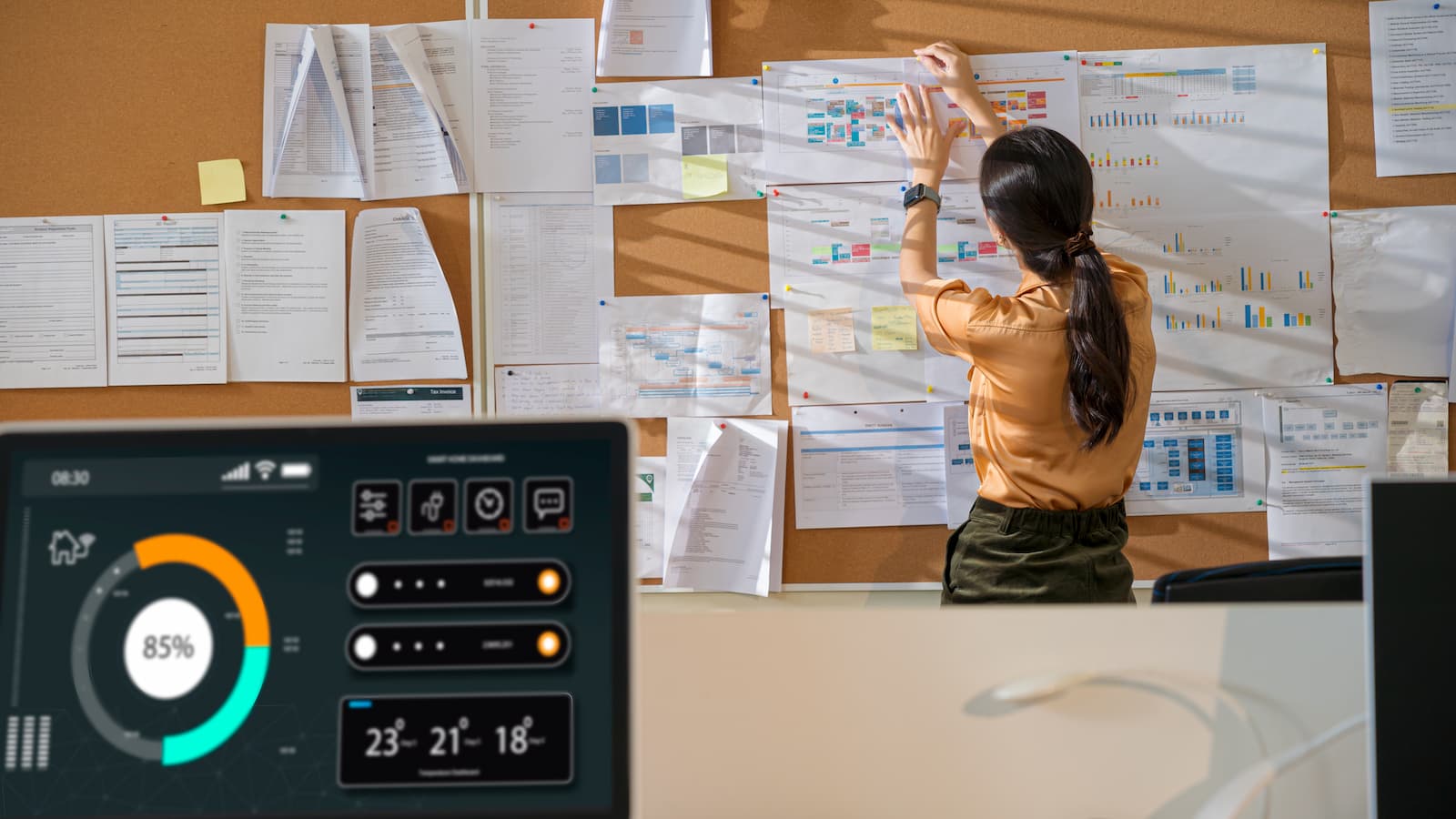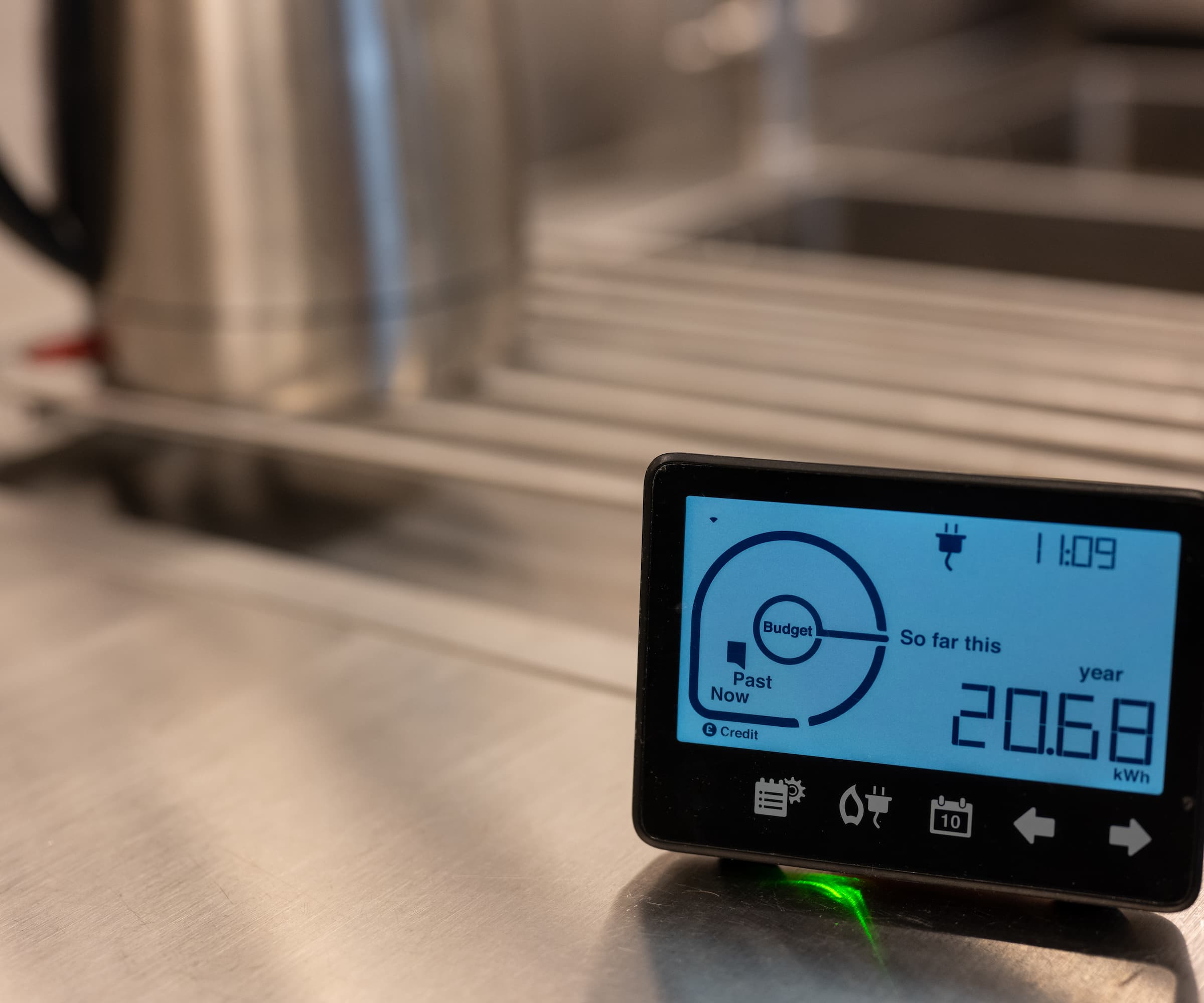Smart meter data sharing proposal sparks privacy concerns
New scheme would grant energy companies more access to information about homeowners and how they use their energy

Bring your dream home to life with expert advice, how to guides and design inspiration. Sign up for our newsletter and get two free tickets to a Homebuilding & Renovating Show near you.
You are now subscribed
Your newsletter sign-up was successful
The government’s latest proposal to allow energy companies to access and share household data from smart meters has raised alarms among privacy advocates, who are warning about the potential risks to consumers.
As part of its push towards net zero, ministers are consulting on a new smart data scheme that could see household energy usage shared with third parties.
These third parties could use the information to offer cheaper deals to help save on energy price rises. However, experts are sounding the alarm over the privacy implications, urging caution before agreeing to data sharing.
Risks of sharing smart meter data
Smart meters have been installed in millions of UK homes, but while they offer real-time energy usage data, the proposal to share this data with third parties is raising concerns.
Privacy campaigners argue that the new scheme could be an intrusion into private homes, as energy companies would gain access to sensitive information about a household’s day-to-day living.
Neil Record, a former Bank of England economist and chairman of Net Zero Watch, has warned that this scheme could lead to extensive monitoring of household behaviour. He stated: “The public should be very wary of increasingly having their household information provided to external agents. Once authorised, this data could reveal far more about how people live than most are comfortable with.”
While the government insists that data would only be shared with consent, the potential for misuse remains a key concern. Record added: “The proposals represent an intrusion, and the public do not realise how extensive that information will be. This isn’t just about energy consumption; it’s about how people live, when they are home, when they go to bed, when they cook, and much more.”
Bring your dream home to life with expert advice, how to guides and design inspiration. Sign up for our newsletter and get two free tickets to a Homebuilding & Renovating Show near you.
Privacy and data protection concerns

With millions of households already using smart meters, the government is exploring how data could be shared to help consumers find cheaper energy deals. However, privacy advocates argue that household energy usage is deeply personal, and sharing such data could lead to unwanted intrusion or exploitation.
Kathryn Porter, an independent energy consultant, expressed concern over the wider implications of sharing this data, especially in the context of rising energy prices. She commented: "If consumers are not fully aware of the scope of data being shared, they could be exposed to a range of commercial pressures they never anticipated. There’s also the risk that people will be enticed into signing up for deals that do not deliver real savings or benefits."
The government has assured that all data sharing would be protected by stringent security measures, and that customers would have to consent to any data being shared.
A government spokesperson said: “Any data sharing would be protected by strong security measures, and participation would be based on clear, informed consent from the customer.”
However, despite these assurances, many remain sceptical about how secure the data would really be. Porter cautioned: “The history of data breaches and misuse is well-documented, and once this kind of personal information is out there, it's hard to control where it goes or who accesses it.”
Broader implications for energy consumers
As the UK government seeks to meet its ambitious net-zero targets, smart meters are seen as a key part of the transition to a cleaner, more efficient energy system.
However, with over 11 million smart meters already installed and another 13.5 billion set to roll out by the end of 2025, many households could soon be affected by this new proposal.
The introduction of time-of-use tariffs, demand flexibility schemes, and lower carbon tariffs all hinge on the widespread sharing of smart meter data. While these schemes can be a great energy saving tip for homeowners, they also raise questions about the potential for exploitation.
Porter concluded: "Smart meters can be beneficial, but it’s essential that households fully understand what is happening with their data. The government must ensure that consumers are not put at risk of having their privacy compromised in the pursuit of cleaner energy."
As the consultation continues, many are urging the government to place a greater emphasis on consumer protection and to reconsider the scope of data-sharing practices that could leave millions vulnerable to privacy breaches.

News Editor Joseph has previously written for Today’s Media and Chambers & Partners, focusing on news for conveyancers and industry professionals. Joseph has just started his own self build project, building his own home on his family’s farm with planning permission for a timber frame, three-bedroom house in a one-acre field. The foundation work has already begun and he hopes to have the home built in the next year. Prior to this he renovated his family's home as well as doing several DIY projects, including installing a shower, building sheds, and livestock fences and shelters for the farm’s animals. Outside of homebuilding, Joseph loves rugby and has written for Rugby World, the world’s largest rugby magazine.
